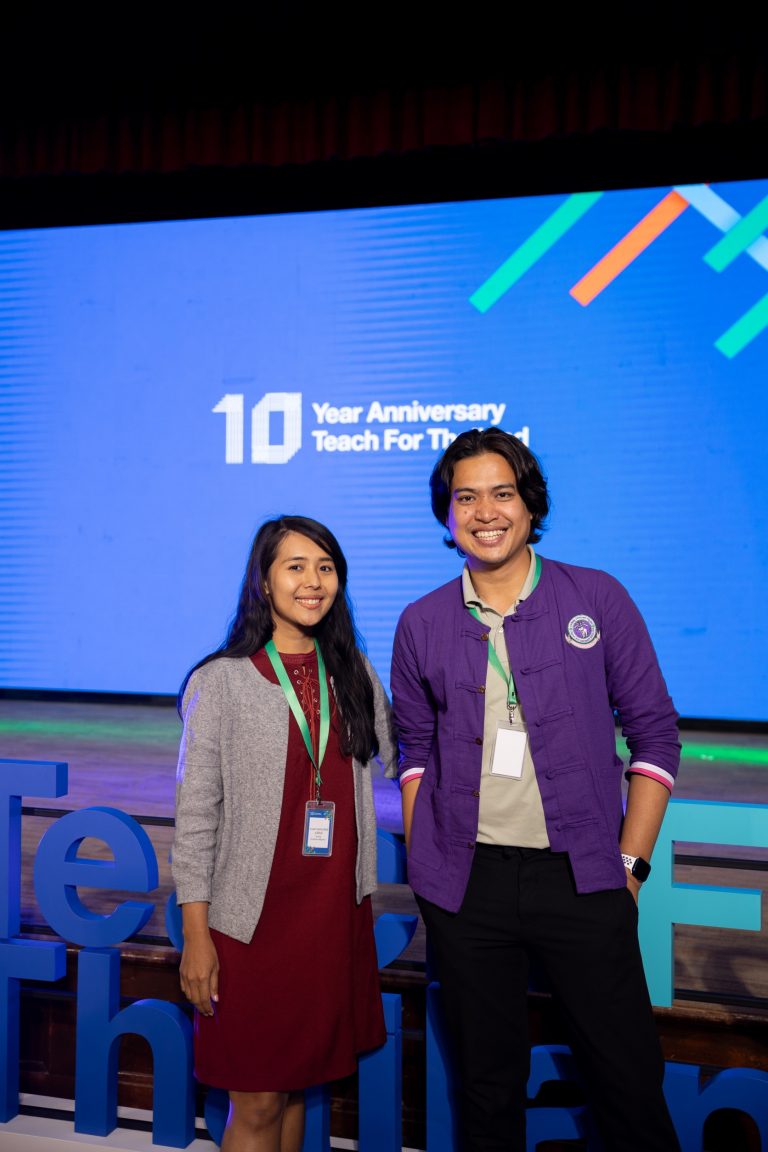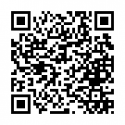Fulfilling Educational Gaps Through Social Studies Teacher Program
The Social Studies Program, initiated by Teach For Thailand (TFT), aims to establish a network for professional learning and leverage the work of social studies teachers in classrooms. This network can also be integrated with TFT’s Fellows. We believe that sustainable change in education requires collaboration from all parties, especially teachers. The program commenced in 2021 and currently has participants from 12 provinces, with evident changes observed in classrooms. In this article, we spoke with two participants of the program: ‘Rattanachart Sarapo’ from Baan Maegnonkilek School, Chiang Mai, and ‘Sutthasinee Chaweesak’ from Rachineeburana School, Nakon Pathom. Both attended TFT’s “10 Years of Change” in November 2023 and provided interesting remarks on the Social Studies Program.

“What did you gain from joining this program?”
“Plenty,” answered Sutthasinee. “The workshop on learning facilitation taught us everything from classroom designs to writing a good lesson plan. Staff also followed up with us after the workshop, helping us reflect and correct our flaws. They also suggested ways to maximize our students’ potential.”
The staff also helps teachers ensure they pay attention to all students in class. Teachers are encouraged to monitor and follow up with their students. “It happens that some students would be left behind during class, but I found many of them to have leadership capabilities and uniqueness after I followed up with them.”
For Rattanachart, the program has provided motivation and support. “The online workshop motivated us and helped keep us going. When I meet with my peers and Mr. Athapol, I always receive valuable advice, such as what to do when I’m exhausted from teaching or how to bounce back. All participants share my experience as a teacher, so we can exchange ideas easily.”
Moreover, TFT’s workshop helped change Rattanachart’s attitude towards educational supervisors. “They are not as intimidating as before. I now know they are not here to nitpick my flaws but to boost my confidence. They helped keep my classroom sharp and ensure I know my students thoroughly.”
“My classroom has changed because I focus more on my students.”
Building on a student evaluation framework is another benefit gained from this program. “The workshop focuses on student reflection, coupled with the use of academic papers on pedagogy. I also gained insights beneficial for my classroom research,” remarked Sutthasinee.
“What has changed since the workshop?”
“We were constantly motivated, and we motivate our colleagues at school. Those who seemed down now strive to push forward” reported Sutthasinee. For Rattanachart, his classrooms have become safer for his students.
“Mr. Athapol said that silence does not mean the students are out of focus. So, I changed my methods and allowed students to give me answers during class afterward. My classroom then becomes safer, and students feel freer to express their answers.”
“They said I understand them and confide in me. I don’t discriminate based on abilities, as all of them are capable of learning. I just need to focus on what they need to fill their learning gaps.”
“What does ‘Fulfill Educational Gaps, Weaving the Future’ mean to you?”
Sutthasinee: “Education is development. Anyone can become better at anything; knowledge, skills, the learning process – these will fulfill what they lack, as well as others. And eventually, it will help them grow and be able to move forward.”
Rattanachart: “I like this phrase. I work in a marginalized school, so many of my students are ethnic minorities. ‘Fulfill educational gaps’ gives me hope that my students will get the same education as those studying in big cities. It resonates with me and motivates me a lot.”
“I also like the phrase ‘weaving the future.’ If my ninth-grade student wants to work right after graduation, that is the future they choose. Teachers only need to fill them in with the Hows – how to work happily, how to take care of their families well, and how to be a good citizen. Teachers understand students’ choice of the future and fill the gaps.”
The Social Studies Program is one of Teach For Thailand’s initiatives, alongside the Fellowship Program, aimed at reducing inequality and supporting equitable education. One day, all children in Thailand will have access to quality education, no matter where they live.
Read more of our stories here: /
- Associate Professor Athapol Anunthavarasakul is a professor at the Faculty of Education, Chulalongkorn University. He is an educator, supervisor, program designer, and coordinator for the Social Studies Program.

